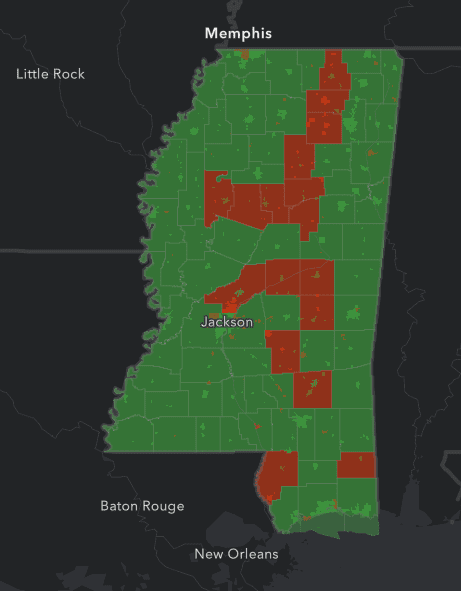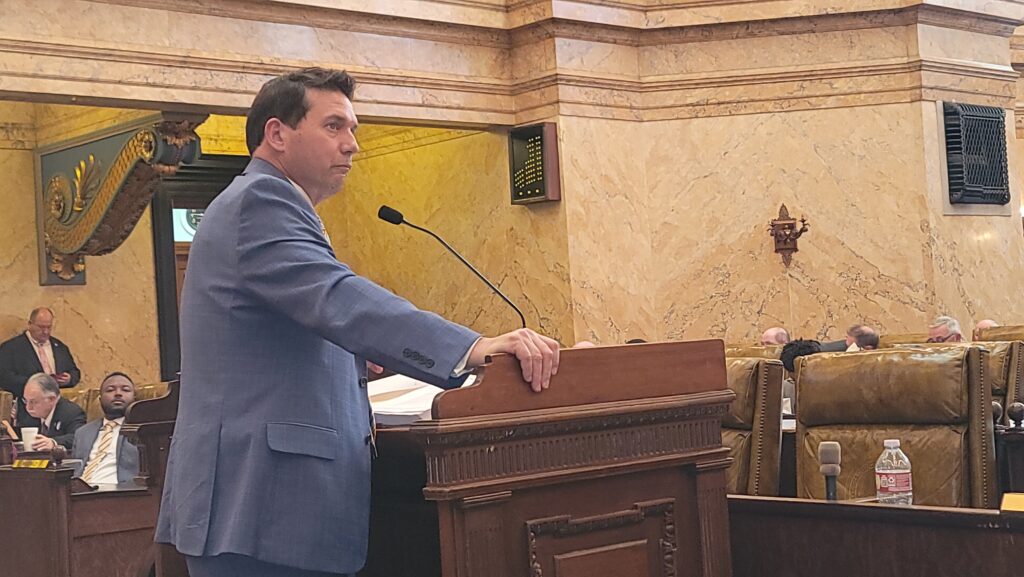
- Patients will be able to get a month’s supply in one trip come July 1, and the research program at Ole Miss looks to provide better treatment options.
A change to the way Mississippi’s Medical Cannabis program operates is coming next month, allowing cardholders to procure a month’s supply of the product instead of only being able to a access a week’s worth at a time.
Current policy states that patients can only purchase a week’s worth of Medical Cannabis Equivalency Units, or about 21 grams. One MCEU equates to about 3.5 grams of the flower form of marijuana, 100 mg of a THC infused product, or one gram of concentrate.
Soon, with the passage of SB 2857, authored by State Senator Kevin Blackwell (R), patients will be able to purchase a month’s supply, or 84 grams, at one time.
State Representative Lee Yancey (R), a key member of the House Drug Policy Committee who helped shepherd through the medical cannabis program, said the change is being made to accommodate patients who live far from a dispensary.

Before the program officially went into effect, city and county officials were allowed to decide if they would allow dispensaries and/or manufacturing facilities to set up shop in their locale. According to the Department of Revenue’s map, which was updated on April 1 of this year, 80 cities and 17 counties have decided not to allow dispensaries to operate within their boundaries. That means people living in those areas have to drive to neighboring cities or counties to obtain medical cannabis.
Rep. Yancey said the change will allow cardholders to reduce their number of trips to a dispensary.
“For instance, a patient with a debilitating condition might have to drive 45 minutes one way to go to a dispensary, and then have to do that every week of the month,” Yancey described. “It was a hardship on them to be able to get their medicine.”
He was clear that the bill does not change the maximum amount of medical cannabis a patient can obtain in a month.
“You can get a month’s supply of opioids, so why not get a month’s supply of medical cannabis if you already have a card from a practitioner confirming that you have debilitating condition?” Yancey said.
In addition to helping those who may not have the funds or good health to make the trip each week, the bill also addresses how background checks are conducted.
Previously, the Department of Public Safety was covering the cost for the FBI to conduct the necessary background checks for those employed in the medical cannabis industry. Rep. Yancey said that expense will now be covered by the applicant. The bill states that the fee cannot exceed $60 for each applicant.

Medical Cannabis Program at Ole Miss
Another piece of legislation that will affect the state’s medical cannabis program is SB 2888, also authored by Senator Blackwell. It establishes a medical cannabis research program at the University of Mississippi on the state level.
Rep. Yancey explained that Ole Miss has been conducting research on cannabis for more than 50 years on the federal level for the National Institute of Health.
“At one time they were the only entity in the country that was allowed to do research on cannabis,” Yancey added.
The scope of the research will be to identify the various cannabinoids produced by marijuana and determine which ailments each variant treats best. Rep. Yancey said the research will also work to find the best dosages for each ailment.

Intoxicating Hemp
One piece of legislation aimed at addressing the sale of intoxicating hemp did not make it through the most recent legislative session.
RELATED: Legislation could restrict sale of “intoxicating hemp” products in Mississippi
Rep. Yancey authored HB 1676 to restrict the growing problem with the sale of intoxicating hemp products. The bill focused on regulating products that exploit a loophole in the 2018 Farm Bill, legislation that allows for the cultivation and sale of industrial hemp products.
Yancey said hemp, like marijuana, contains THC, but on much lower levels. However, man-made products can concentrate those levels and create products that meet or exceed the THC levels of those derived from marijuana.
The bill would have regulated the products, removing them from gas stations and convenience stores, and requiring them to be sold through medical marijuana dispensaries. The products could have been regulated by the Department of Health and the Department of Revenue.
There was also a testing component to the bill, which further complicated its passage, Rep. Yancey said.
“That’s really where the snag was, it was going to be hard to test all of those products with it being in so many different places,” Yancey said.
He plans to bring up similar legislation in the next session, while also watching what happens with the Drug Enforcement Agency’s proposal to reduce marijuana’s drug schedule classification.
“I think it is a changing environment there across the country. You see that the DEA has recommended that this be a Schedule 3 instead of Schedule 1, the implications of that are going to be wide ranging and far reaching,” he added.
Yancey said Mississippi already has a great template in place to handle the schedule change through the medical cannabis dispensaries should it come to fruition.











